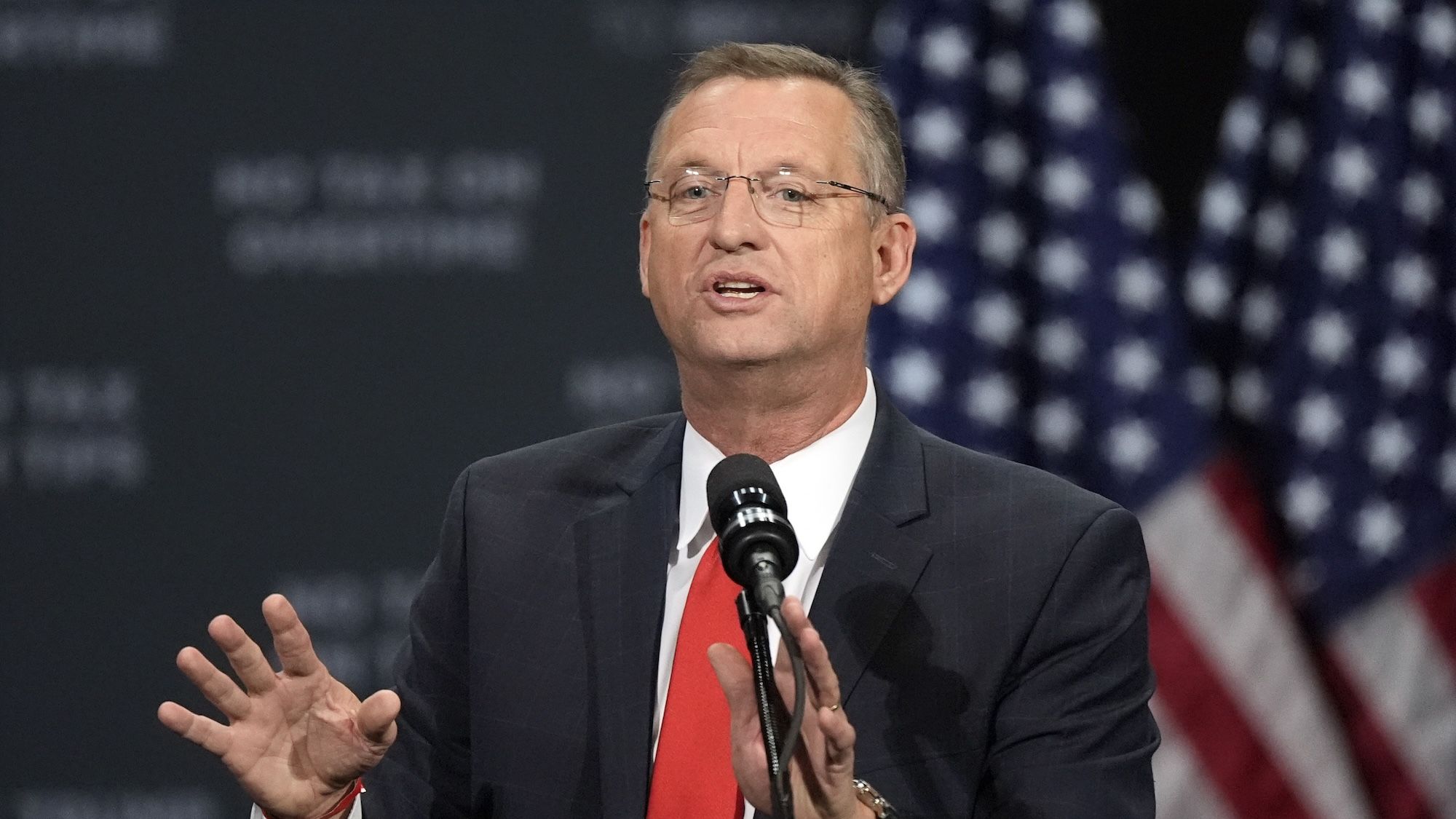Doug Collins: A Political Profile of Trump's Pick for VA Secretary

In November 2024, Doug Collins, former U.S. Representative from Georgia's 9th congressional district, found himself back in the political spotlight after former President Donald Trump announced his intent to nominate Collins for Secretary of Veterans Affairs. A staunch ally of the Trump administration and an experienced lawmaker, Collins appears to be a fitting choice. His legislative background, military service, and history of defending Trump during key moments like the 2019 impeachment have all contributed to his notoriety and qualifications for the role.
A Political Ally and Defender of Trump
Doug Collins has long been known for his unwavering support of Donald Trump. During the former president's first impeachment trial in 2019, Collins earned national attention as a fierce defender, with many referring to him as the face of Trump’s defense in the U.S. House of Representatives. His role in pushing back against impeachment charges helped solidify his standing as a Republican leader loyal to Trump's agenda. This loyalty didn’t go unnoticed as Trump has continued to rely on Collins even after the congressman’s departure from the House in 2021.
Collins officially left Congress in 2021 after serving four continuous terms. He first assumed office in January 2013 to represent Georgia's 9th district, following his earlier political experience in the Georgia House of Representatives from 2007. While Collins lost a 2020 Senate bid to incumbent Senator Kelly Loeffler, his deep ties within the Republican Party and his Trump-first approach have kept him relevant in conservative politics.
A History of Military Service
Beyond his legislative career, Doug Collins brings significant military credentials to the table. A Veteran of the Iraq War, Collins serves as a chaplain in the Air Force Reserve, a role that has seen him ministering to service members both domestically and abroad. His firsthand knowledge of Veterans' needs—both spiritual and logistical—provides him with a unique perspective on the challenges facing the Department of Veterans Affairs in 2024.
This military background sets Collins apart from other political appointees. The VA Secretary position, tasked with ensuring the wellbeing of millions of U.S. Veterans, requires leadership that understands the needs of those who served. With Collins’ experience on the front lines and in government, there’s hope that he may inspire change within the Department of Veterans Affairs, often criticized for its inefficiencies and systemic issues.
A Potential Impact on the Veterans Affairs Department
The Department of Veterans Affairs has been an area of focus for multiple administrations, and under Collins’ proposed leadership, changes may be on the horizon. One potential shift could lie in his view of decentralizing the VA’s bureaucracy and advocating for more localized, patient-focused care. Veterans have often voiced concerns surrounding wait times for critical services and the quality of medical care, and Collins has signaled that these are areas he intends to address.
Given Collins' reputation as a tenacious advocate and reformer, political experts predict he may push for legislation aimed at modernizing the VA’s infrastructure and improving oversight—an effort that could gain traction with a friendly Congress. However, he will need to navigate potential challenges, particularly if faced with a divided Washington.
What Lies Ahead for Doug Collins?
If confirmed by the Senate as Veterans Affairs Secretary, Doug Collins will face the pressure of managing one of the most scrutinized federal agencies, with responsibilities that impact millions of Americans who bravely served their country. While his track record in Congress and his personable nature on the campaign trail both serve as assets, the real test will come in his ability to tackle the longstanding issues plaguing the VA.
As the confirmation hearings approach, supporters will highlight Collins' extensive experience with Veterans’ issues, as well as his firm leadership during some of the Trump administration’s most contentious battles. Skeptics, however, may question his lack of experience managing large federal organizations—and whether his close ties to Trump could cause partisan divides in decision-making.
Still, Collins’ military service and years representing Georgia’s 9th district suggest he has the insight and passion needed for the job, earning him the trust of many veterans and their families as they await the future direction of the Department of Veterans Affairs under his leadership.
Conclusion
Doug Collins’ nomination as Secretary of Veterans Affairs highlights the continued collaboration between Donald Trump and his closest political allies. With a background that uniquely blends military service and staunch conservative politics, Doug Collins stands on a foundation ready to enact reform at one of the nation’s most vital institutions dedicated to supporting Veterans. As America watches, only time will reveal the full impact of Collins’ leadership on the VA and the broader Veteran community.
For more information on Doug Collins and his political background, feel free to explore his profile on Wikipedia or keep up with the latest news regarding his nomination on NPR and The New York Times.
